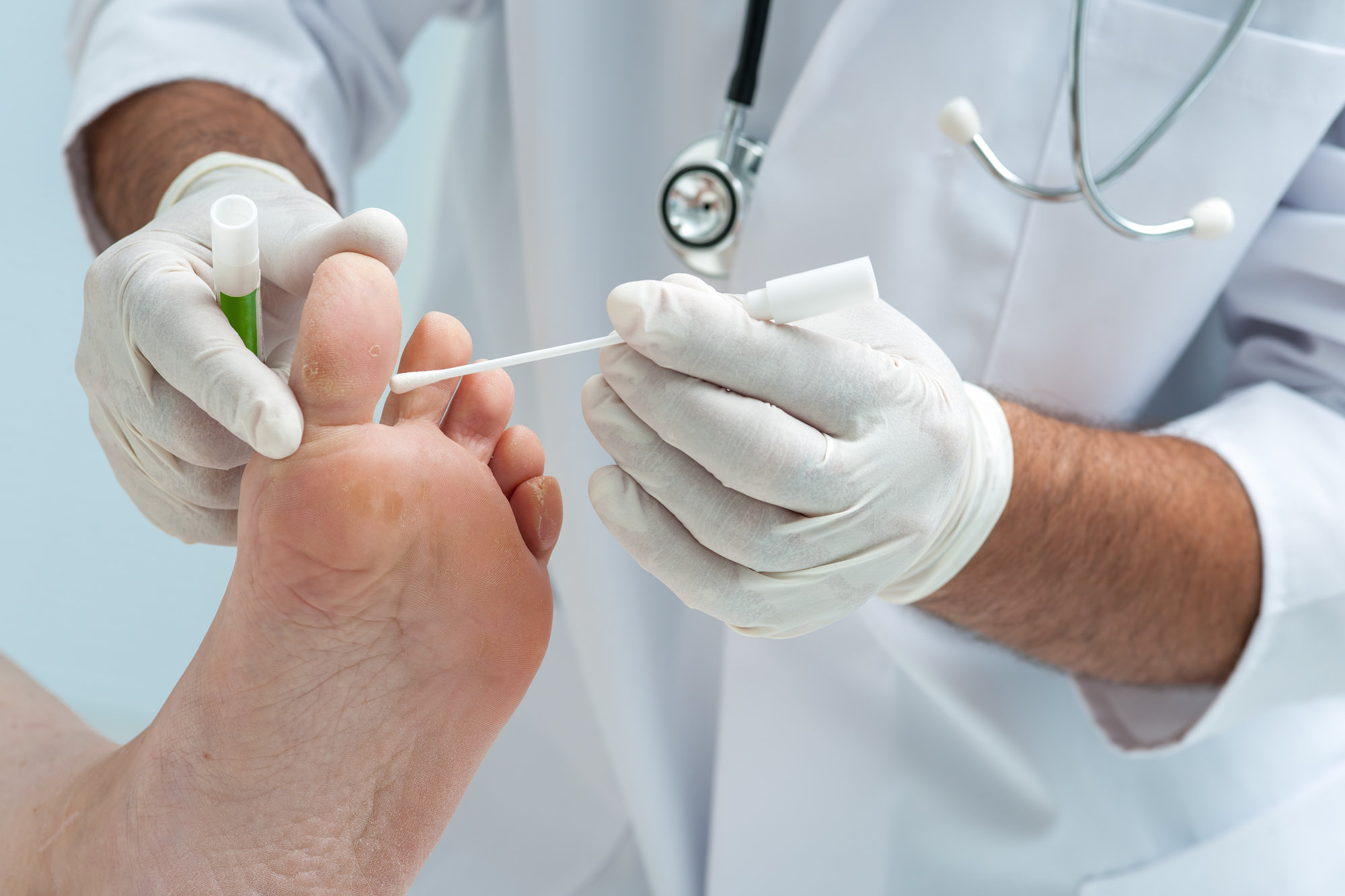Although everyone should take care of their feet and treat wounds immediately, individuals with diabetes must pay especially careful attention to their feet and potential foot injuries. If you are diabetic, check your feet daily and schedule regular appointments with your podiatrist.
How Does Diabetes Affect the Feet?
Diabetes can cause damage to nerves in the foot, resulting in decreased sensation. This condition is known as peripheral neuropathy. As a result, damage can be done to the foot but not be detected by the individual. Those who suffer from diabetes must develop a rigorous system of visually checking their feet for injuries on a daily basis.
Individuals with diabetes also typically have poor circulation due to peripheral vascular disease. As a result, white blood cells that fight infection are slower to respond and have difficulty reaching the infected area. Unfortunately, individuals with diabetes are more prone to infections and wounds that may remain unhealed for an extended period.
What are the Consequences of Untreated Foot Damage?
Serious health problems can be the consequence of untreated sores on the feet. What, for the average person, is a minor injury or sore on the foot is extremely dangerous for diabetics. Foot ulcers are common complications and are a portal for infection. A bacterial infection of the skin, connective tissues, muscles, and bones can occur and eventually develop into gangrene. Due to poor circulation, antibiotics sometimes are not an effective treatment. An infection that spreads to the bloodstream can be a life-threatening condition. Ultimately, untreated foot wounds can result in the need for amputation of the foot or leg without the immediate help of a podiatrist.
How Can Foot Wounds be Treated?
In addition to antibiotics, there are several advanced wound care therapy treatments for diabetic feet. Some of these treatments include:
- Negative pressure wound therapy.
- Hyperbaric oxygen therapy.
- Platelet rich plasma therapy.
- Bio-engineered human tissue grafts.
- High-energy ultrasonic debridement.
- Synthetic bone and soft tissue grafting.
Any diabetic who finds a sore, ingrown toenail, corn, or bunion should seek an evaluation from a podiatrist. If you live in Texas, turn to the expert care of the board-certified podiatrists of Austin Podiatry.

